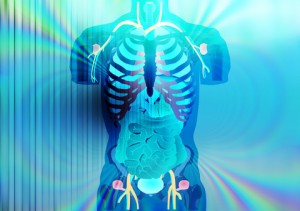Ativan Addiction Basics
 An addiction to Ativan can begin with a series of small, seemingly inconsequential steps. A person with a prescription for the medication might take two doses at once on a really bad day, just hoping to get a little burst of good feeling. A person without a prescription might cadge a few pills from a family friend, looking for a way to soothe out a rough point in the emotional road. The actions seem benign and perhaps even a bit reasonable, but in time, the use might begin to spiral out of control. Two pills taken at once become three pills snorted multiple times each day. A few stolen pills transforms into street deals in which the user buys hundreds of doses, all at once. The use moves from the realm of the controllable to the land of compulsion, and it can be hard for people to find the path back to sobriety. Families may be able to help, but they might first need to know a little more about how these issues develop, and how they can be effectively treated.
An addiction to Ativan can begin with a series of small, seemingly inconsequential steps. A person with a prescription for the medication might take two doses at once on a really bad day, just hoping to get a little burst of good feeling. A person without a prescription might cadge a few pills from a family friend, looking for a way to soothe out a rough point in the emotional road. The actions seem benign and perhaps even a bit reasonable, but in time, the use might begin to spiral out of control. Two pills taken at once become three pills snorted multiple times each day. A few stolen pills transforms into street deals in which the user buys hundreds of doses, all at once. The use moves from the realm of the controllable to the land of compulsion, and it can be hard for people to find the path back to sobriety. Families may be able to help, but they might first need to know a little more about how these issues develop, and how they can be effectively treated.
Benzodiazepine Facts
Ativan is just one of many benzodiazepine drugs available. These drugs can be used to treat a variety of different conditions, including:
- Anxiety disorders
- Sleep disorders
- Movement disorders
- Alcohol withdrawal
The drugs are designed to work a bit like a damper on an overactive brain, slowing down naturally occurring signals and allowing peace, relaxation and calm to enter in. When used appropriately for a short period of time, these drugs are considered safe and effective, and some people who take these therapies simply couldn’t succeed without the chemical tweak these substances can provide. However, these medications can also cause some very real problems for people who take them at high doses. For example, a study in the journal Substance Use and Misuse suggests that Ativan, also known by the generic name lorazepam, can cause a feeling of euphoria in people who take it. The drug can cause a series of chemical changes inside the brain that lead to boosts in specific neurotransmitters the brain normally emits in response to a pleasurable situation. These chemical boosts can cause a person to feel happy and joyful, even when there is no reason for that joy. The pleasure boost can also keep people coming back to the drug again and again, even when they don’t have a medical reason for taking the drug.
These chemical changes can also serve to lock an Ativan addiction in place, as a person who is accustomed to the presence of the drug can feel a variety of very negative symptoms when that drug is removed. Some people feel anxious and unable to sleep without the drug, and others feel jittery and upset. Taking a pill can make these signs of distress disappear, so people might feel as though they simply must take the drug or feel the terrible consequences of their decision to get sober.
Special Issues for Women
 Anyone who takes Ativan might be susceptible to the damage the drug can cause, but an article in the journal Psychiatry Research: Neuroimaging suggests that women might develop these addictions at a more rapid pace when compared to men, simply because they’re given these drugs twice as often as men are. This study found that men and women seem to metabolize lorazepam in similar ways within the brain, meaning that both men and women could develop an addiction, but since women are provided with the medication more often, addictions might be more common among women.
Anyone who takes Ativan might be susceptible to the damage the drug can cause, but an article in the journal Psychiatry Research: Neuroimaging suggests that women might develop these addictions at a more rapid pace when compared to men, simply because they’re given these drugs twice as often as men are. This study found that men and women seem to metabolize lorazepam in similar ways within the brain, meaning that both men and women could develop an addiction, but since women are provided with the medication more often, addictions might be more common among women.
It’s hard to know why women might be prescribed this powerful drug on a more frequent basis when compared to men, as the women who are given this medication may seem to have little in common. It’s possible that the high prescription rates come about simply because women are more likely to visit their doctors, when compared to men, and they’re more likely to discuss their mental health concerns openly. In a culture where men are required to be tough and strong and women are asked to be talkative and compliant, women just might see their doctors more frequently and receive medications at the end of the visit. It’s also possible that Ativan addictions have their roots in the lives some women are forced to lead.
Some women endure sexual abuse during childhood, and this experience leaves deep scars that are slow to heal. Other women face violence during adulthood, from their intimate partners or from strangers, and they struggle to understand how the issue came about, and how to resolve the very real scars an incident like this can leave behind. Women facing trauma like this are often prescribed benzodiazepines like Ativan because they can help to calm and relax an anxious mind.
However, the link between addiction and stress in women is quite strong.
In a study in the journal Psychology of Addictive Behaviors, for example, researchers found that 46 percent of women who were in treatment programs for addiction also met the criteria for post-traumatic stress syndrome. Women like this who are under pressure and who are given euphoric drugs for relief might easily slip into addictive behaviors, moving from using their medications appropriately to taking them indiscriminately.
The Damage an Addiction Can Cause
 Many addictive drugs cause very serious physical problems in the people who take them. People who abuse cocaine intranasally, for example, might damage the cartilage inside the nose. People who abuse heroin with needles, by contrast, might infect their skin with each injection, and those illnesses can spread and grow. People who abuse Ativan may not face physical problems like this, but they may have other kinds of psychiatric and mental wounds that can be slow to heal.
Many addictive drugs cause very serious physical problems in the people who take them. People who abuse cocaine intranasally, for example, might damage the cartilage inside the nose. People who abuse heroin with needles, by contrast, might infect their skin with each injection, and those illnesses can spread and grow. People who abuse Ativan may not face physical problems like this, but they may have other kinds of psychiatric and mental wounds that can be slow to heal.
People who take benzodiazepine medications may experience what writers in the journal American Family Physician call “emotional anesthesia.” Here, these people become so accustomed to using medications to soothe their symptoms that they become incapable of handling all of the day-to-day details of life. Their emotions become hard to control and small stresses become big problems. People who live with addicted people like this might feel as though they’re continually asked to step in and save the day, even when the trigger is mild and meaningless.
Other personality changes that can come with benzodiazepine abuse, the authors suggest, include:
- Inattentiveness and forgetfulness, which can make people seem lost in their own minds and insensitive to the needs of the family
- Increase in expressions of rage or violence, along with an inability to regulate responses to small triggers
- Depression
- Emotional blunting, meaning that the person seems sedated almost all the time
These personality changes can make life difficult for a family living with an addicted person, but they can also be difficult for the addicted person to live with. Their brains seem strange and out of control, and their emotions seem difficult and new. They may feel angry and impulsive, and unable to keep even minor problems in line with the power of the mind. It’s hard to live this way, yet people with addictions simply might not see that there’s a way to ease the pain and make life more tolerable. The addiction stands in the way of clear thinking.
Getting Help
Since Ativan addictions can be damaging to a person’s emotional health and well-being, it’s vital for families to offer their support and expertise to a person who is addicted. People who have these addictions may resist the very idea of getting help, but families who explain how treatment works and why it might be important may be able to break through denial and help people to see the need for care.
If a woman you love has an Ativan addiction, we encourage you to contact us at The Orchid. We’ve designed programs just for women who are addicted, and we can provide you with information about our programs and the help we offer. The woman you love might be willing to get help, once she understands the support she’ll access at The Orchid. Please call us to find out more.
